
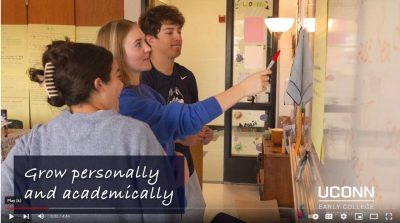
UConn ECE is now on TikTok! @uconnece
Also, check out our new welcome video here!
UConn First Summer, an exploratory summer program designed for incoming first-year and transfer students who will be starting at UConn in the fall, welcomed back 25 students on campus for Summer 2022. The five-week residential program allowed students to engage from six course offerings, participate in workshops to build connections with university departments, and ease the transition in a smaller setting.

UConn ECE Faculty Coordinators
Dr. Robert Thorson, UConn ECE Earth Sciences Faculty Coordinator, incorporates an original podcast, Climate Underground into the teaching of his Honors First Year Seminar, Climate Underground and is used in UConn ECE offering of ERTH 1051, Earth’s Dynamic Planet. He describes the course as “Staying afloat without going bonkers requires knowing how the Earth works, what its history has been, and how this knowledge can be put to good use.”

UConn ECE Instructors
Kristen Rotherham, ENGL 1007 UConn ECE Instructor at Bethel High School shares: My sci-fi flash fiction story, “Cruising for Love” was published on the Wanamaker Studio Flash Fiction podcast over the summer. (*note I use my maiden name when I publish creative writing but it’s really me!)
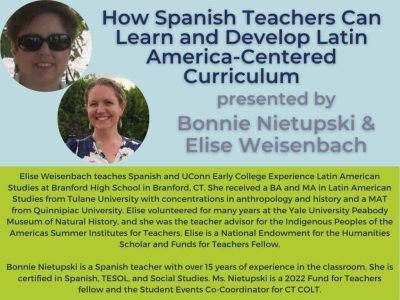
Expert teachers of ECE LLAS 1190: Introduction to Latin America and the Caribbean Elise Weisenbach (Branford High School) and Bonnie Nietupski (Rocky Hill High School) decided to share their work this fall with the CT Organization of Language Teachers or COLT. At the Conference “Deepening Connections Across Languages, Cultures and Communities” on Oct 20th, 2022, teachers were excited to receive a large slide deck with links to a myriad of lessons that Elise and Bonnie have developed to support the teaching of Latin American Studies. Their presentation “How Spanish Teachers can Learn and Develop Latin America-centered Curriculum” pointed teachers to online resources, summer institutes & grants for teachers, and their own lesson plans, hosted on google docs and on an ECE LLAS website, Laplazavirtual.org, which will soon transition to a permanent new site. Bonnie and Elise hope to get teachers around the state more interested in both the integration of Latin America into their classroom curriculum and in teaching LLAS 1190. Their work paid off at the conference, as 3 schools approached ECE coordinator Anne Gebelein at the event expressing interest in teaching the course at their high school. We are grateful to Bonnie and Elise for being so willing to share their ECE expertise and enthusiasm to inspire other educators.
In remembrance
Cathy Manning, Westhill High School Statistics Instructor for UConn ECE, passed away this past August. She was known as a “devoted educator and her career in academia was her passion. She was a wonderful friend to her fellow teachers, and her students loved her both as an instructor and mentor who always made herself available to anyone who needed her support and counsel.*” UConn ECE extends their gratitude to Cathy for her 12 years of teaching UConn courses at Westhill.
Conference Funding for UConn ECE Instructors
UConn ECE provides limited funding to UConn ECE Instructors to attend conferences to promote their UConn classes and concurrent enrollment as a dynamic model for education. While funding is not guaranteed, conference presenters and attendees can apply to the UConn ECE Program Office to help offset some of the costs.
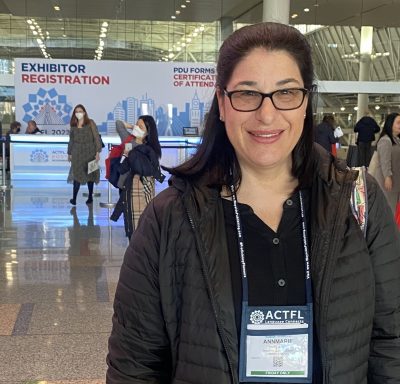
Annmarie Thibodeau: On Friday, November 18, 2022, I had the opportunity to attend the ACTFL (The American Council on the 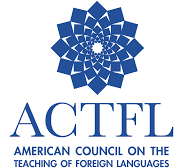 Teaching of Foreign Languages) in Boston, MA with several of my World Language colleagues from The Woodstock Academy. It was a wonderful professional opportunity to learn more about current teaching and learning of all languages, specifically Spanish. I was able to attend three works hops and speak with numerous exhibitors at the World Language Expo about available resources and travel and study opportunities. I especially enjoyed the conference, Practical Strategies to Boost Student Communication. The presenter provided us with some new strategies and techniques to promote spontaneous communication in the classroom and motivate students to be committed life-long language learners. I am looking forward to sharing his message with my colleagues and students. Thank you for this opportunity.
Teaching of Foreign Languages) in Boston, MA with several of my World Language colleagues from The Woodstock Academy. It was a wonderful professional opportunity to learn more about current teaching and learning of all languages, specifically Spanish. I was able to attend three works hops and speak with numerous exhibitors at the World Language Expo about available resources and travel and study opportunities. I especially enjoyed the conference, Practical Strategies to Boost Student Communication. The presenter provided us with some new strategies and techniques to promote spontaneous communication in the classroom and motivate students to be committed life-long language learners. I am looking forward to sharing his message with my colleagues and students. Thank you for this opportunity.
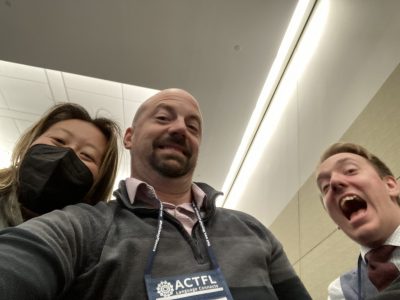 Andrew Morehouse: While attending the 2022 ACTFL conference in Boston, I had some wonderful opportunities for professional development in seeing multiple sessions on utilizing SLA theory in practice (especially with a focus on assessment) and using tech tools that are in line with modern language pedagogy. Additionally, I made connections with several publishers to work on projects with them that will provide better Latin resources for the world. When not at talks or chatting with publishers, I was able to get resources such as novellas for my Spanish classes. All the while, I spent time with dear friends and colleagues and developed deeper bonds and relationships with these folks. I am incredibly appreciative of the funding from UConn that allowed this to happen and I look forward to going to ACTFL Chicago next year to spread more word of the ECE program.
Andrew Morehouse: While attending the 2022 ACTFL conference in Boston, I had some wonderful opportunities for professional development in seeing multiple sessions on utilizing SLA theory in practice (especially with a focus on assessment) and using tech tools that are in line with modern language pedagogy. Additionally, I made connections with several publishers to work on projects with them that will provide better Latin resources for the world. When not at talks or chatting with publishers, I was able to get resources such as novellas for my Spanish classes. All the while, I spent time with dear friends and colleagues and developed deeper bonds and relationships with these folks. I am incredibly appreciative of the funding from UConn that allowed this to happen and I look forward to going to ACTFL Chicago next year to spread more word of the ECE program.
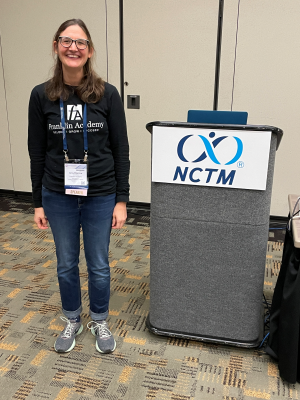 Amy Bigelow: December 1 & 2, math educators converged in Baltimore for the annual National Council of Teachers of Mathematics conference. I was honored to present Metacognitive Strategies to Help College-Bound Students (with Autism) Thrive, with funding support from the ECE program. I shared the process I use in MATH 1131Q &1132Q and STAT 1100Q that builds off the technique of an exam wrapper to help students build the skills to go from the high school expectations of homework as practice to the college expectations of writing accurate problem set solutions with clear justification and proper notation. Beyond the reflective conversations I had with other teachers after my talk, I was inspired by sessions addressing promoting joy in the classroom, lifting up each and every person, and capitalizing on the formative assessment process. I am excited to return to my department with techniques for including more movement and wordplay and for posing questions with too little information to build curiosity.
Amy Bigelow: December 1 & 2, math educators converged in Baltimore for the annual National Council of Teachers of Mathematics conference. I was honored to present Metacognitive Strategies to Help College-Bound Students (with Autism) Thrive, with funding support from the ECE program. I shared the process I use in MATH 1131Q &1132Q and STAT 1100Q that builds off the technique of an exam wrapper to help students build the skills to go from the high school expectations of homework as practice to the college expectations of writing accurate problem set solutions with clear justification and proper notation. Beyond the reflective conversations I had with other teachers after my talk, I was inspired by sessions addressing promoting joy in the classroom, lifting up each and every person, and capitalizing on the formative assessment process. I am excited to return to my department with techniques for including more movement and wordplay and for posing questions with too little information to build curiosity.
One of the unexpected highlights to calm my nerves before presenting was being welcomed by the friendly and supportive Professor Tutita Casa of the Neag School who was serving on the program committee. The Huskies represented well in Charm City.
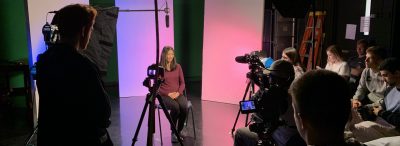 tall interactive game wall in the Boston Children’s Hospital or historic VR tours of King Charles the IV’s crowning ceremony, our students make works of art by thinking collaboratively. Collaboration and critique are valuable skills in new media, corporate, and academic environments. Our program accommodates most professional and open-source software, and we work with teachers who need initial support converting courses. Students in our program intern and work at companies like Adobe, Disney, Epic Games, ESPN, and Pixar. For teachers looking to apply, please check the requirements of the portfolio on the UConn ECE DMD course page.
tall interactive game wall in the Boston Children’s Hospital or historic VR tours of King Charles the IV’s crowning ceremony, our students make works of art by thinking collaboratively. Collaboration and critique are valuable skills in new media, corporate, and academic environments. Our program accommodates most professional and open-source software, and we work with teachers who need initial support converting courses. Students in our program intern and work at companies like Adobe, Disney, Epic Games, ESPN, and Pixar. For teachers looking to apply, please check the requirements of the portfolio on the UConn ECE DMD course page. UConn ECE
UConn ECE  After being introduced to molecular photoswitches by Dr. Michael Kienzler, from UConn’s Chemistry Department and the ECE
After being introduced to molecular photoswitches by Dr. Michael Kienzler, from UConn’s Chemistry Department and the ECE  UConn ECE
UConn ECE 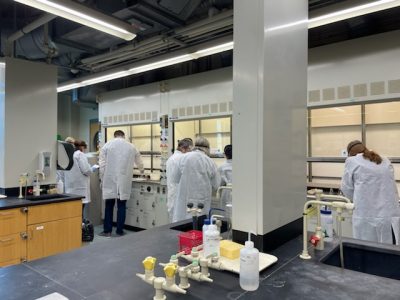
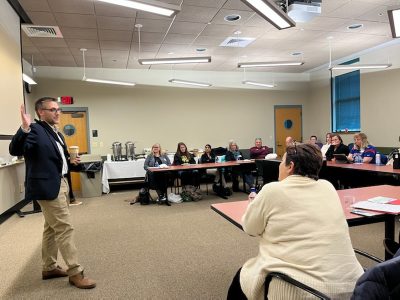
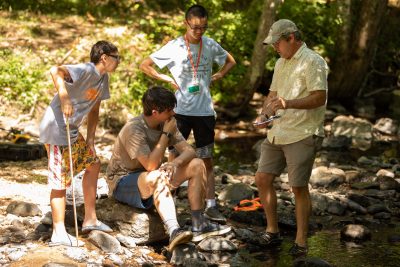
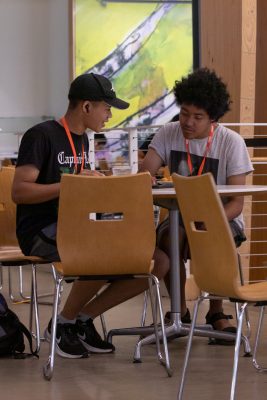
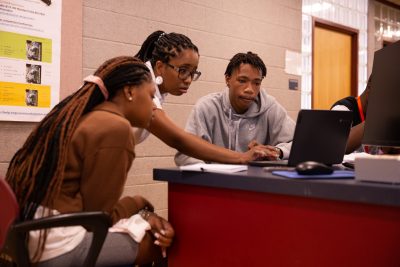
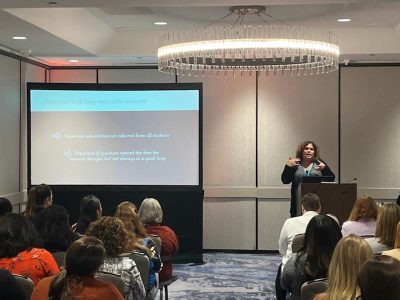 sessions, and workshops, UConn ECE presented a session in the research strand, accepted their re-accreditation plaque, and paid tribute to Prince by visiting the First Avenue Night Club.
sessions, and workshops, UConn ECE presented a session in the research strand, accepted their re-accreditation plaque, and paid tribute to Prince by visiting the First Avenue Night Club.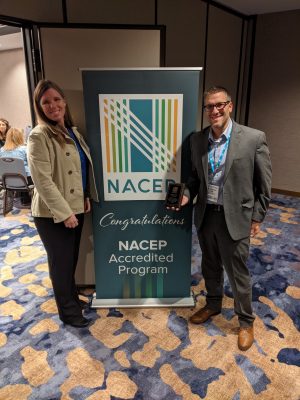 discussed how she improved the UConn ECE Alumni Survey and aligned it with other surveys and data collection points, with the ultimate goal of having a cohesive data set for continual program improvement. Todd and Rutkauskas attended the accreditation and re-accreditation luncheon where they accepted the UConn ECE NACEP re-accreditation plaque, indicating that the UConn ECE program meets NACEP standards and will hold this accreditation for the next seven years. UConn ECE is the only program in New England to hold NACEP accreditation
discussed how she improved the UConn ECE Alumni Survey and aligned it with other surveys and data collection points, with the ultimate goal of having a cohesive data set for continual program improvement. Todd and Rutkauskas attended the accreditation and re-accreditation luncheon where they accepted the UConn ECE NACEP re-accreditation plaque, indicating that the UConn ECE program meets NACEP standards and will hold this accreditation for the next seven years. UConn ECE is the only program in New England to hold NACEP accreditation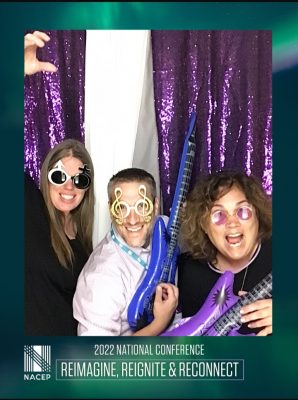 was “how hard people are working to maximize the benefits and experience dual/concurrent enrollment students are having and how widespread these programs are”. Rutkauskas is excited to start using what she learned about
was “how hard people are working to maximize the benefits and experience dual/concurrent enrollment students are having and how widespread these programs are”. Rutkauskas is excited to start using what she learned about 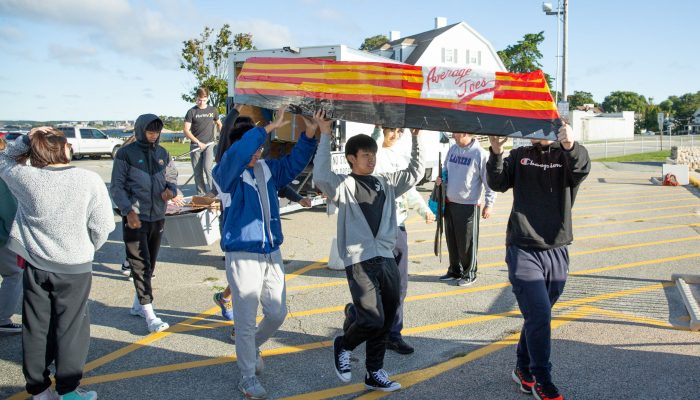
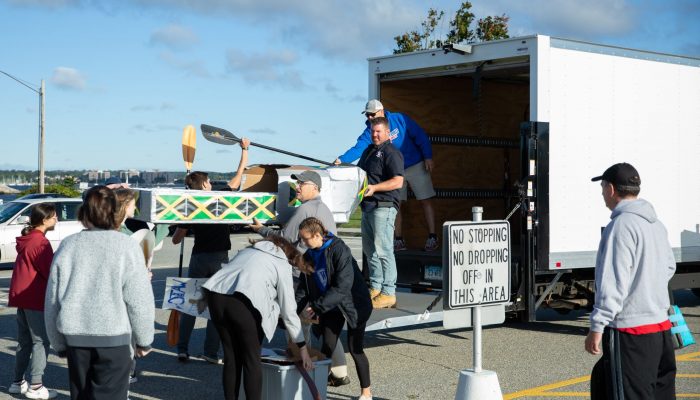
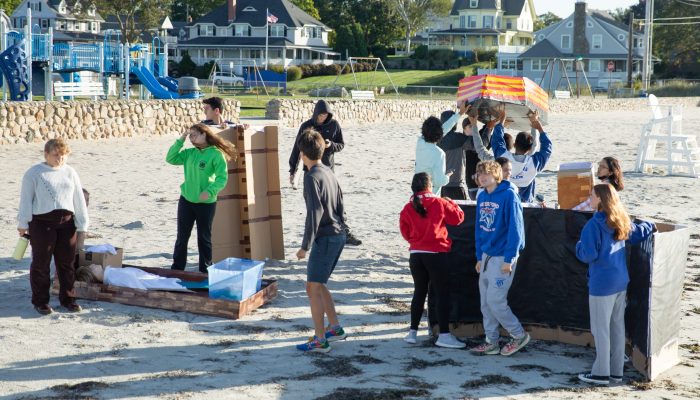
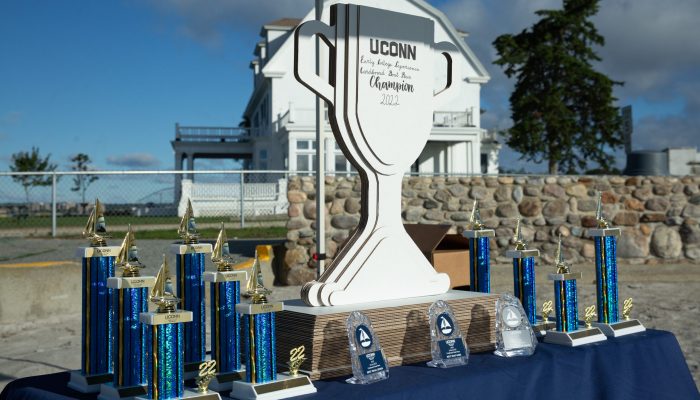
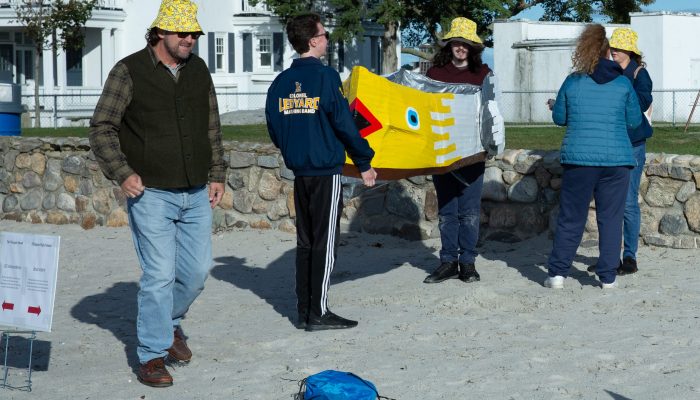
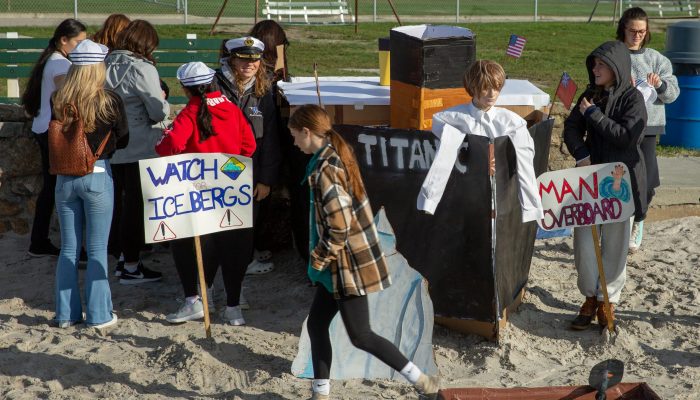
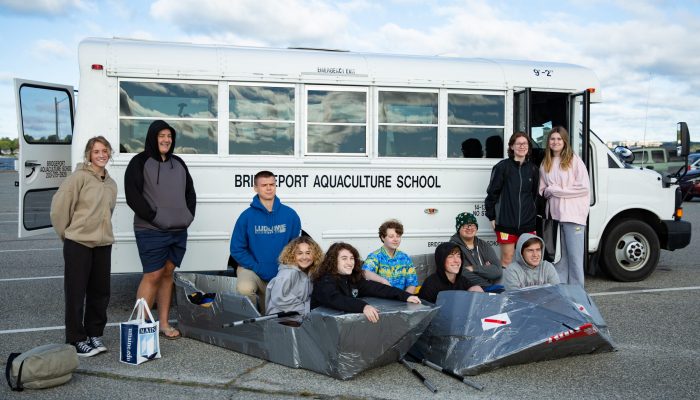
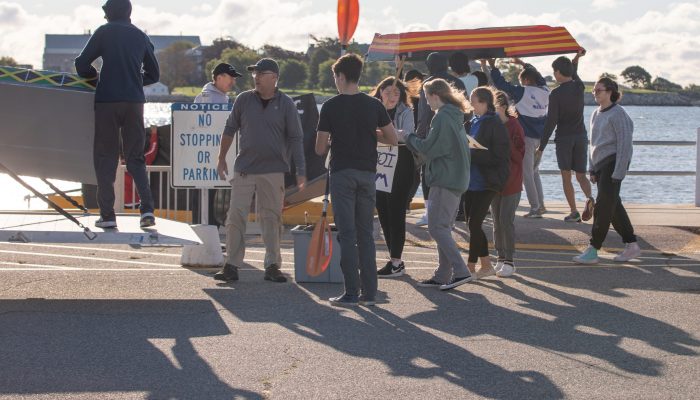
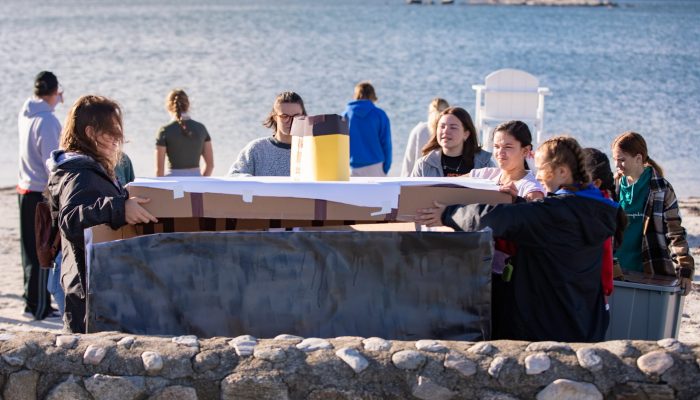
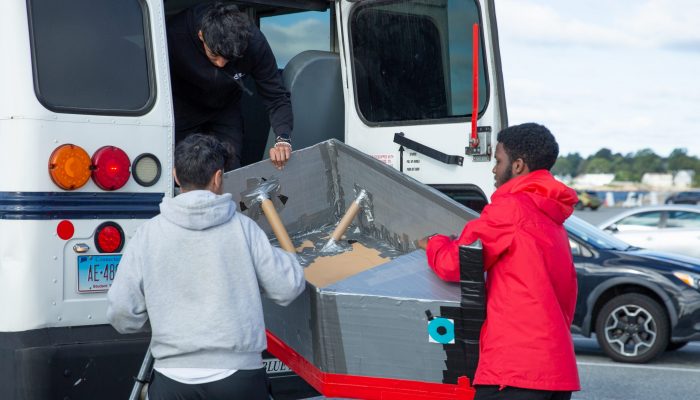
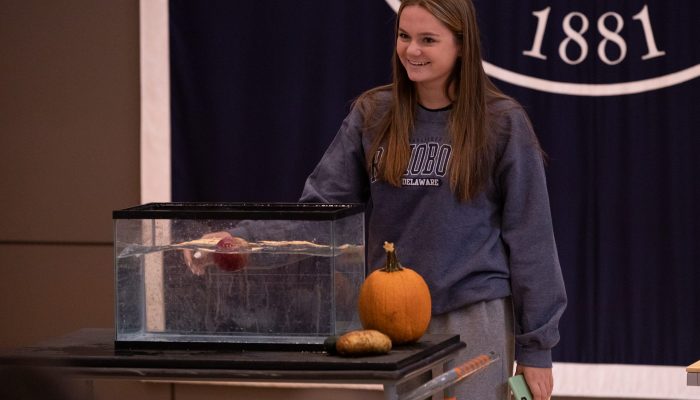
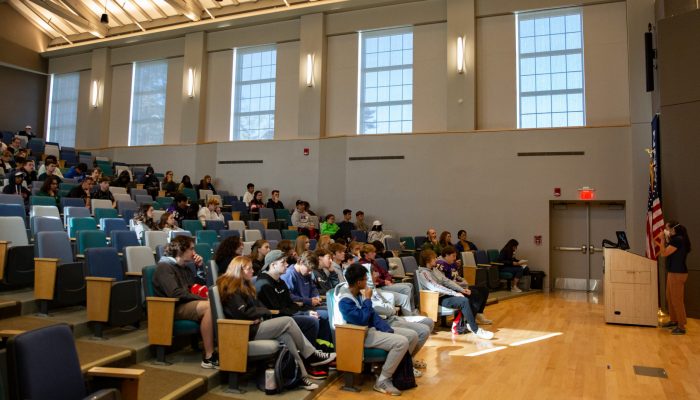
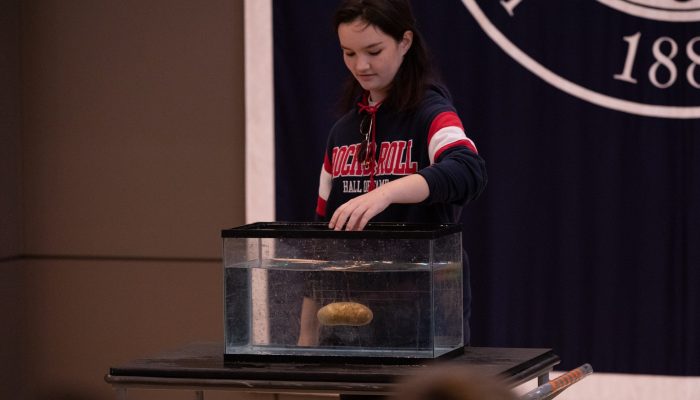
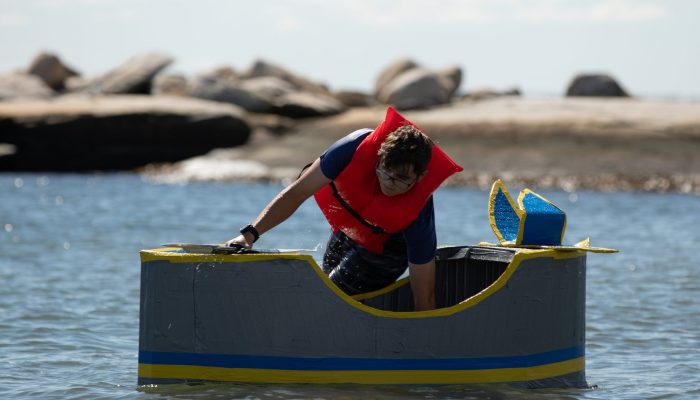

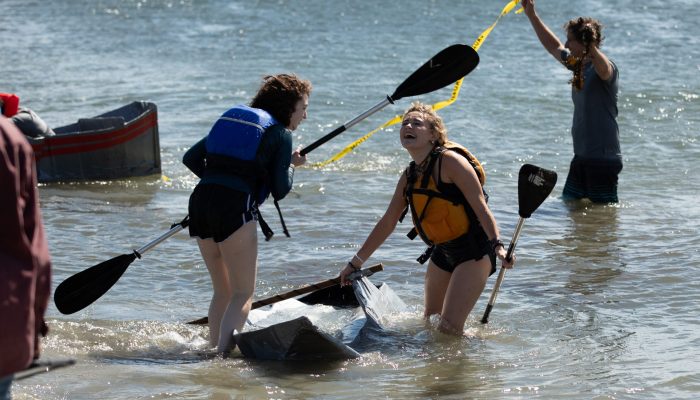
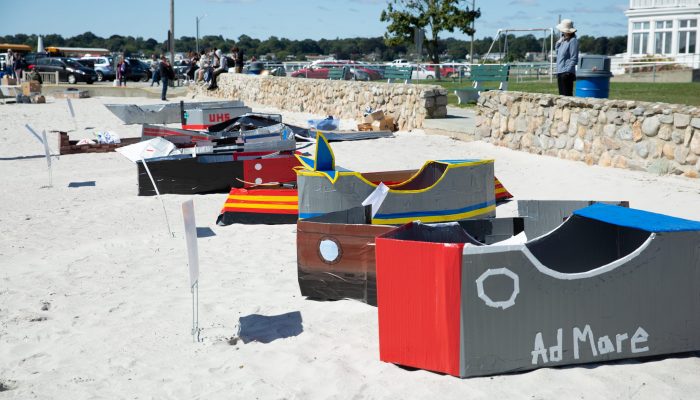
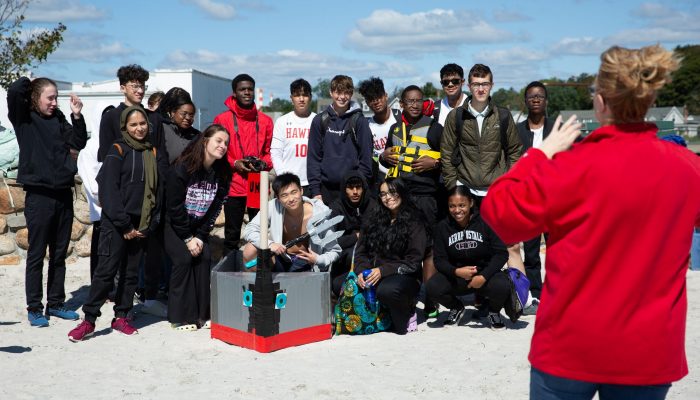
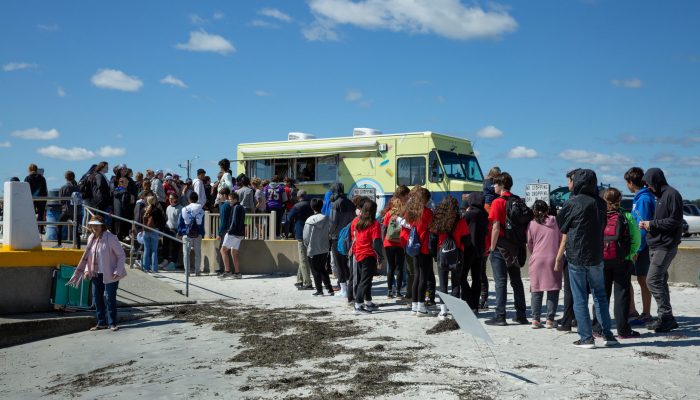
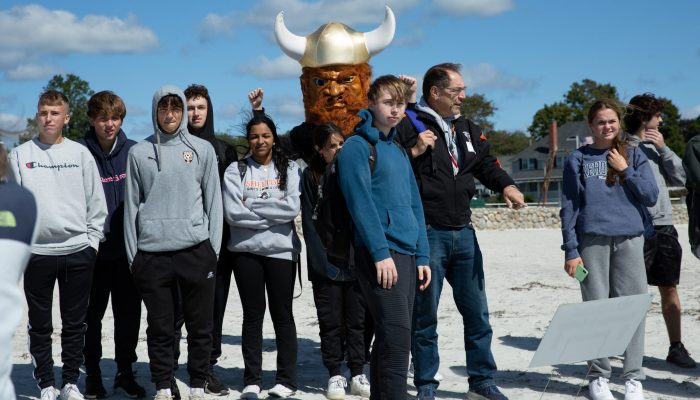
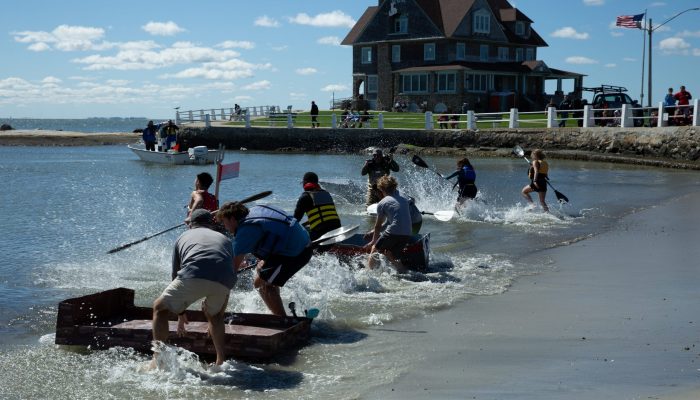
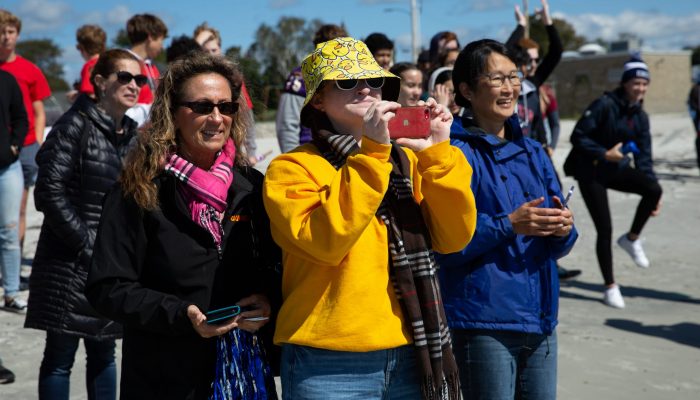
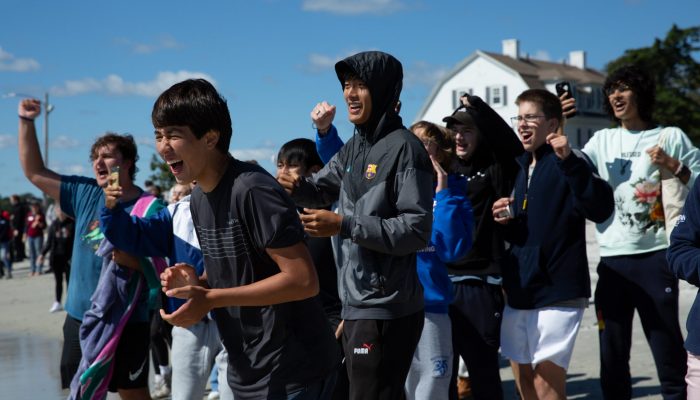
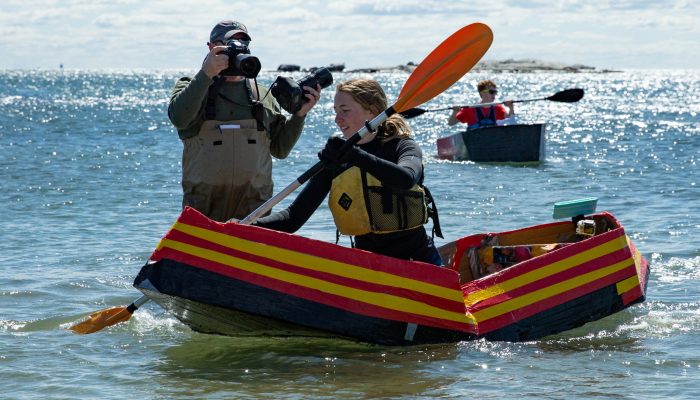
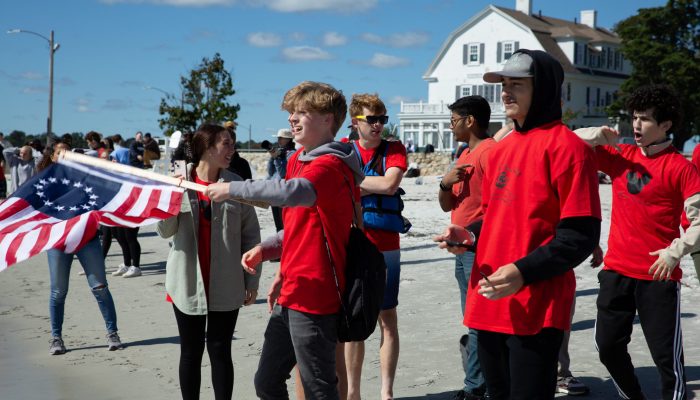
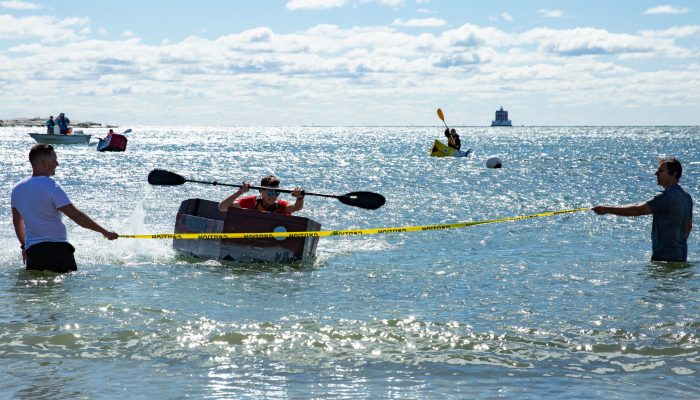
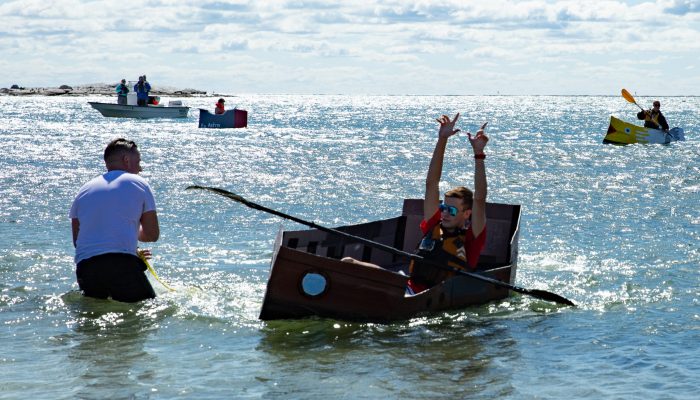
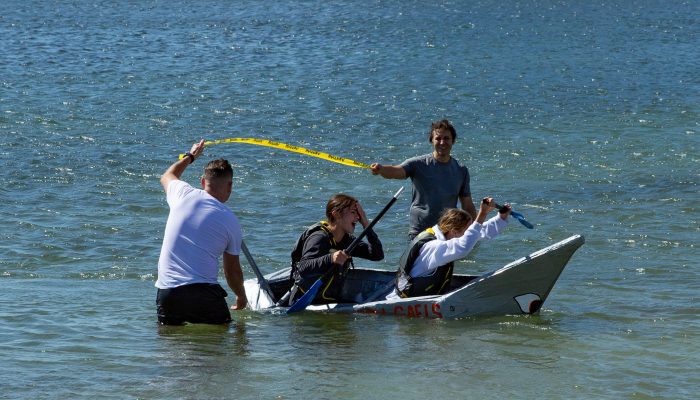
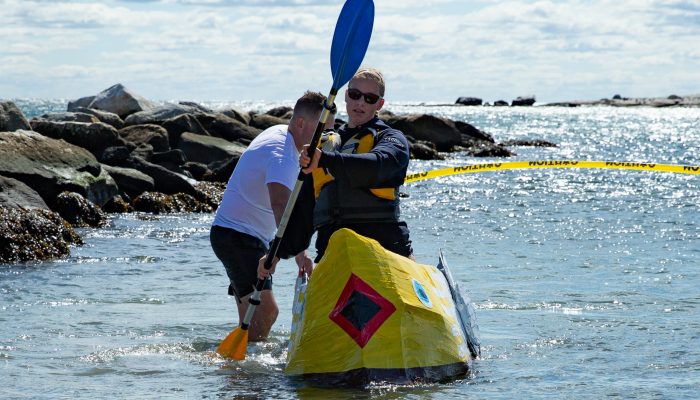

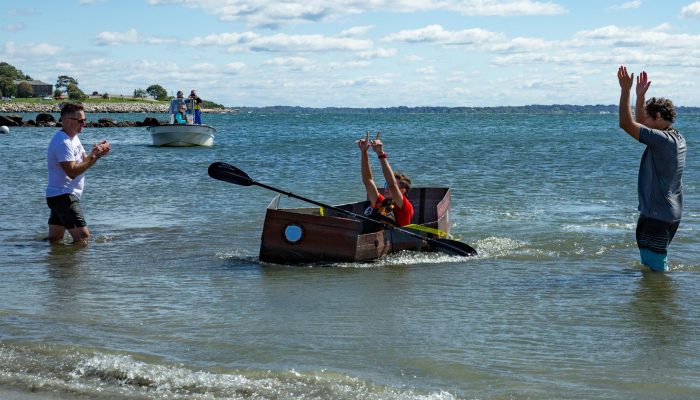
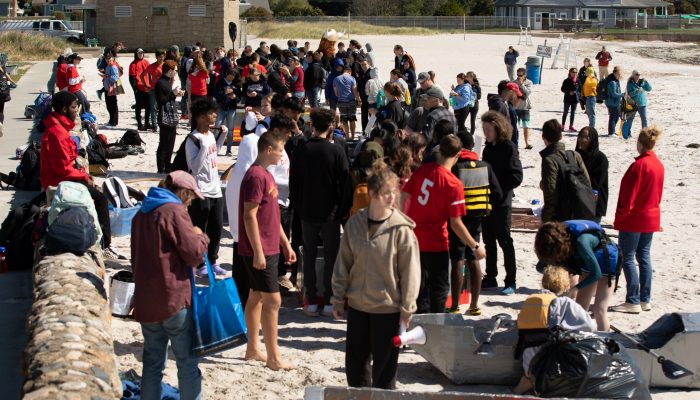
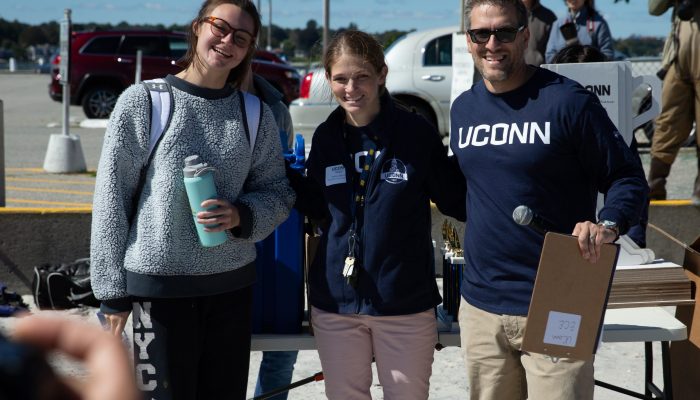
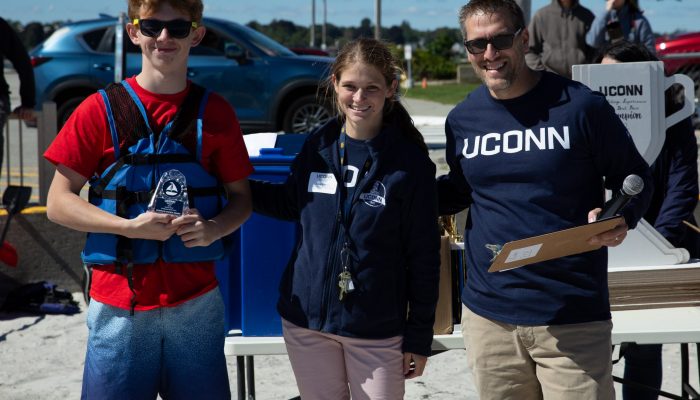
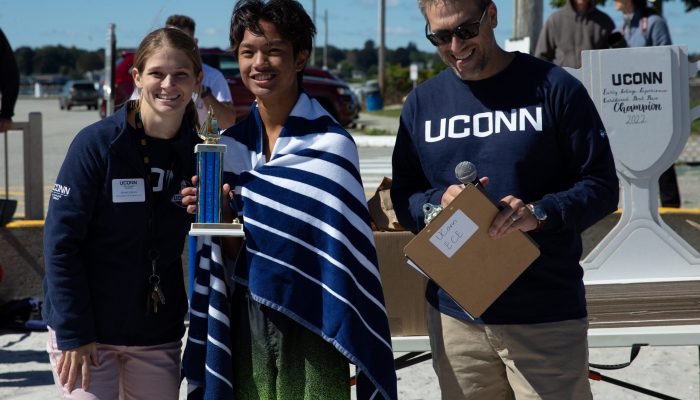
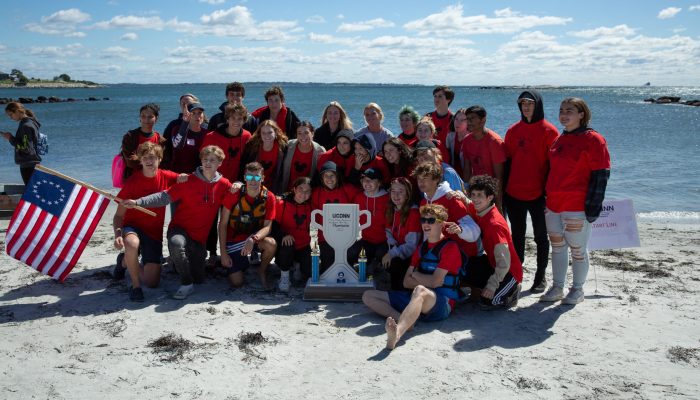
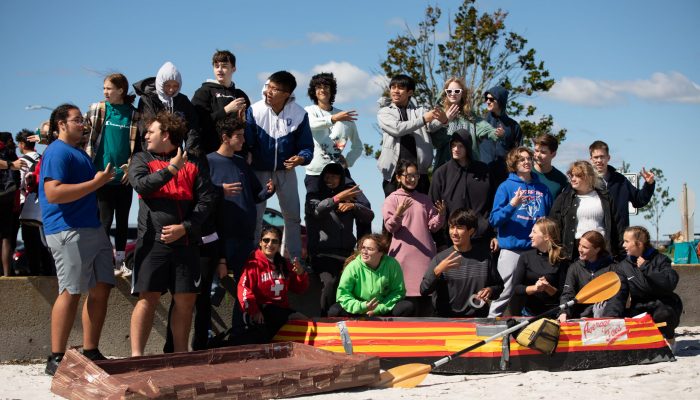
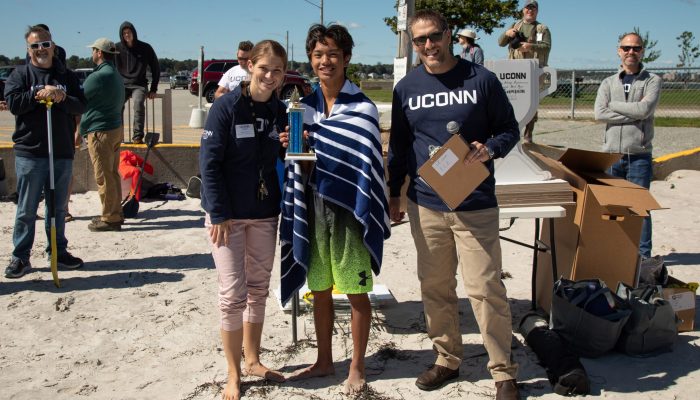
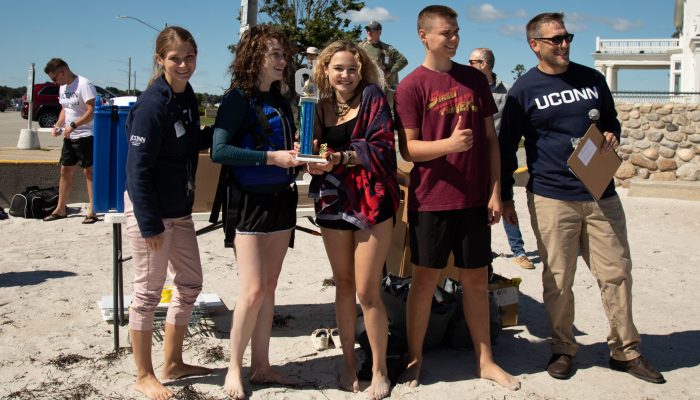
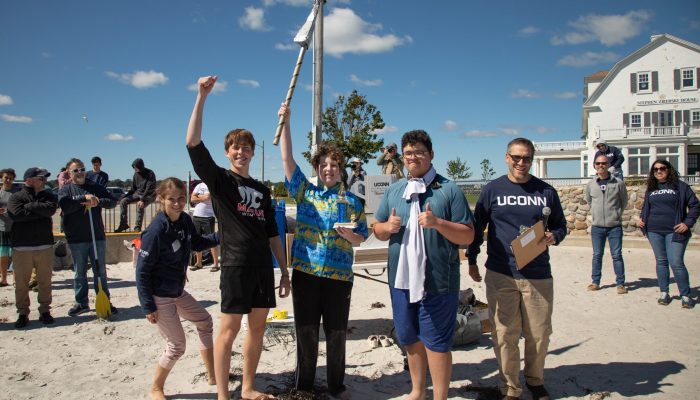
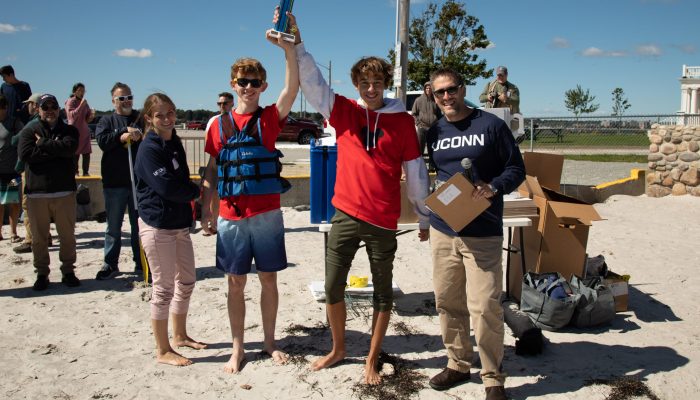
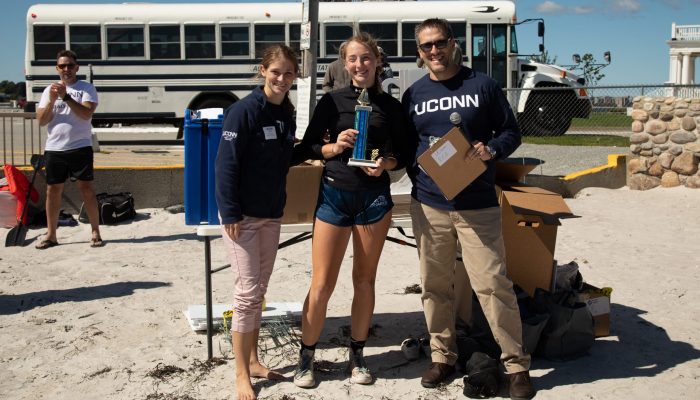
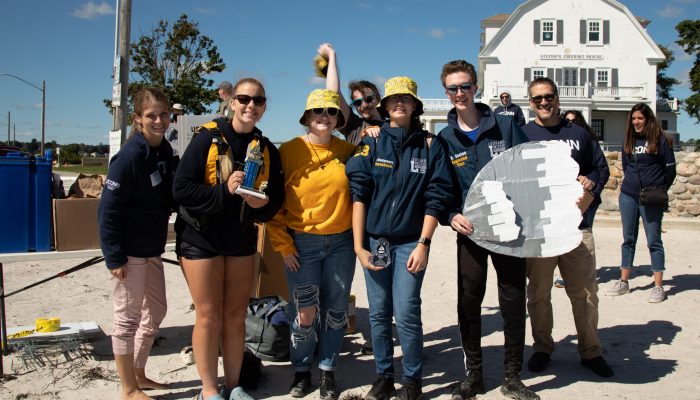
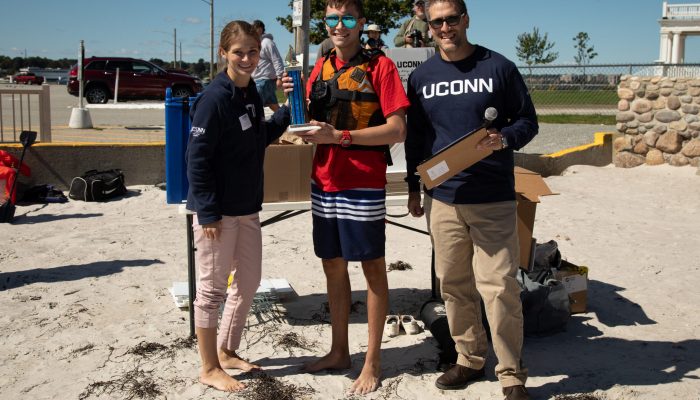
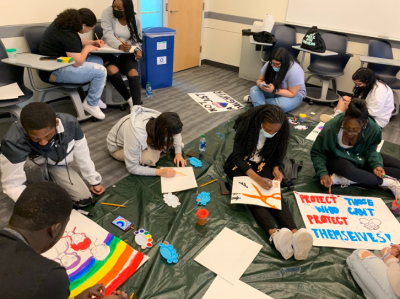 (HRCH) is a three-year undertaking to advance Connecticut teachers’ and students’ skill and capacity in human rights education and civic action. The project brings educators, youth, university scholars and community leaders together to foster these goals through a variety of programing.
(HRCH) is a three-year undertaking to advance Connecticut teachers’ and students’ skill and capacity in human rights education and civic action. The project brings educators, youth, university scholars and community leaders together to foster these goals through a variety of programing.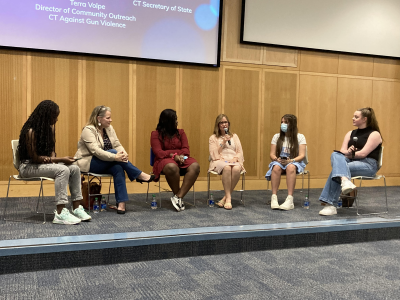 May 18th summit was host to 250 students from 10 high schools. The attendees engaged in a wide range of sessions informing and empowering young people around human rights and civic action. The youth team is currently working to develop the upcoming HRCH Youth Summit to be held in January 2023.
May 18th summit was host to 250 students from 10 high schools. The attendees engaged in a wide range of sessions informing and empowering young people around human rights and civic action. The youth team is currently working to develop the upcoming HRCH Youth Summit to be held in January 2023.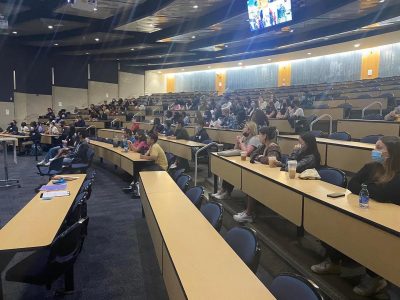 setting. These young people embody the ideal of a human right defender at the heart of Human Rights Education. Their work is at the forefront of human rights education and civic action in Connecticut. Their presentation at NCSS will emphasize the work of HRCH on the national stage to engage and empower educators to enshrine human rights and civic education into their practice.
setting. These young people embody the ideal of a human right defender at the heart of Human Rights Education. Their work is at the forefront of human rights education and civic action in Connecticut. Their presentation at NCSS will emphasize the work of HRCH on the national stage to engage and empower educators to enshrine human rights and civic education into their practice.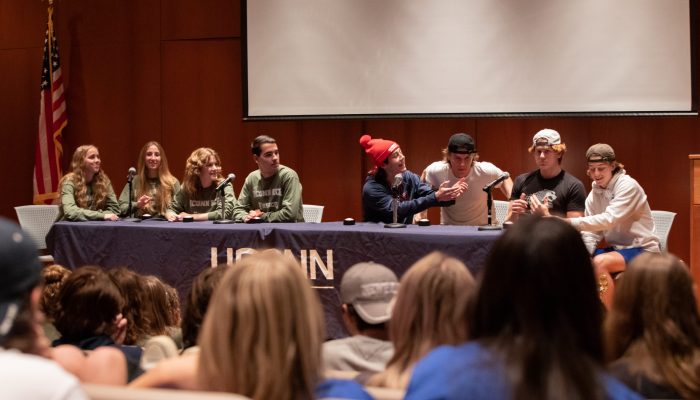
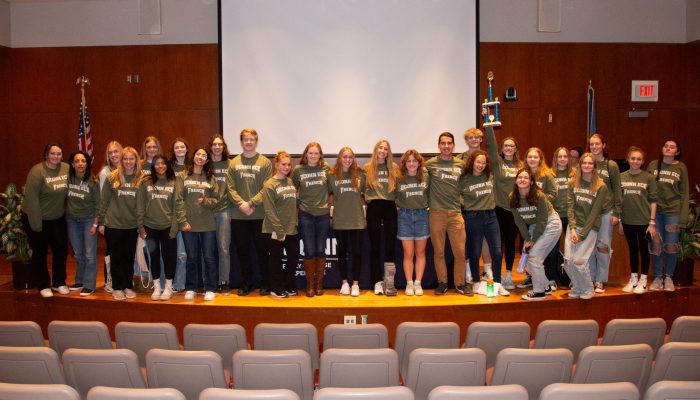
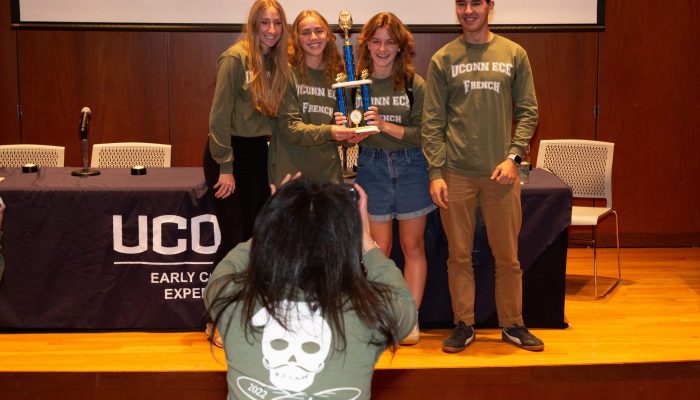
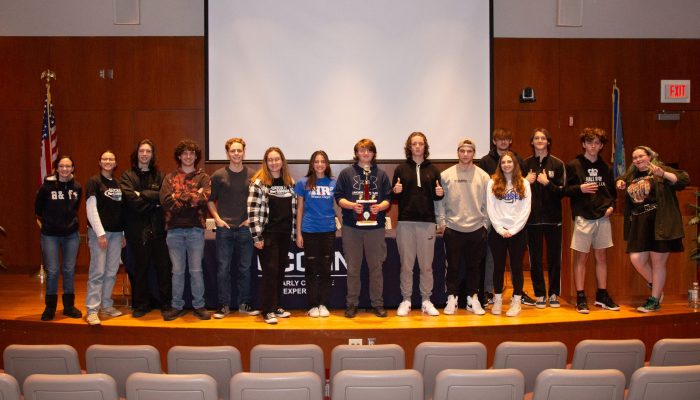
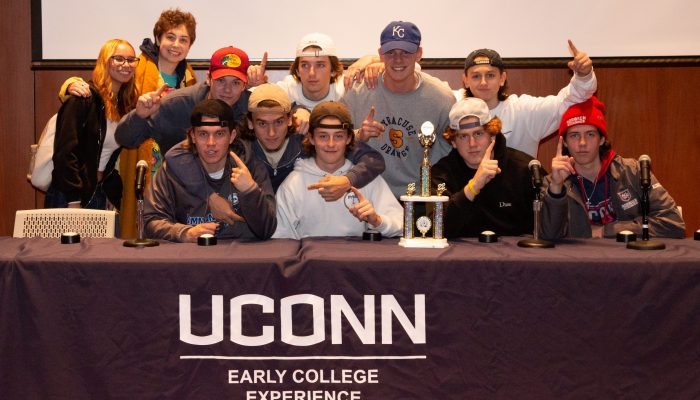
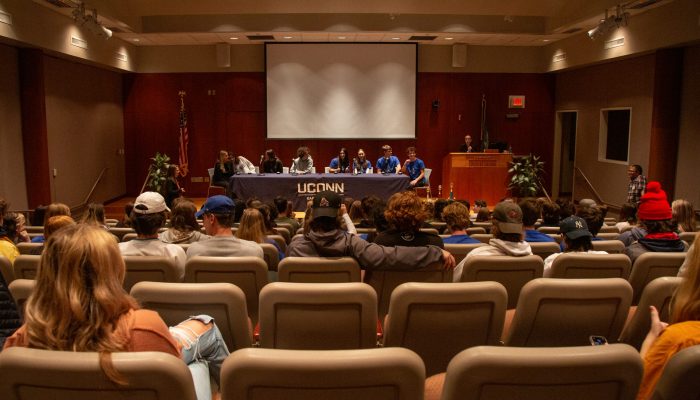
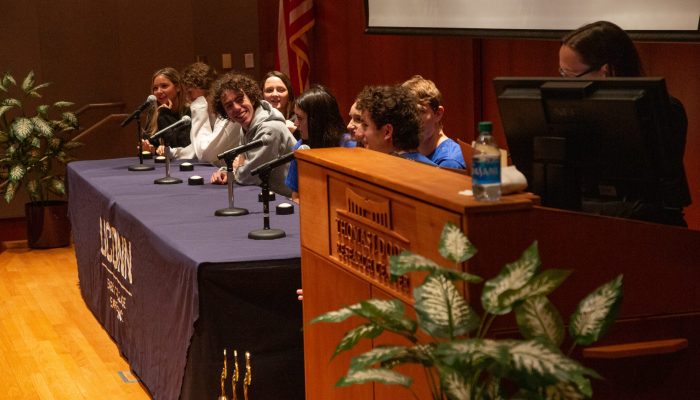
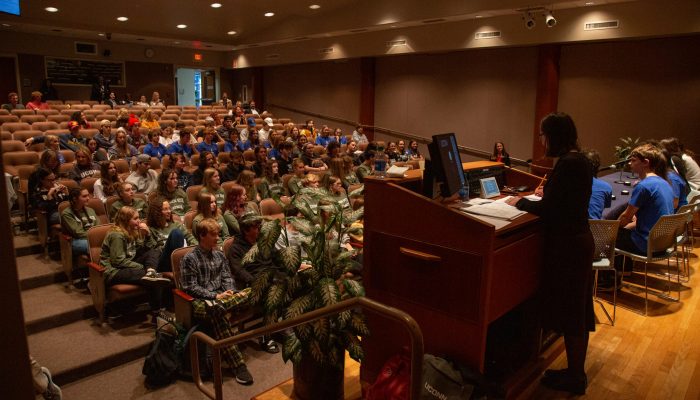
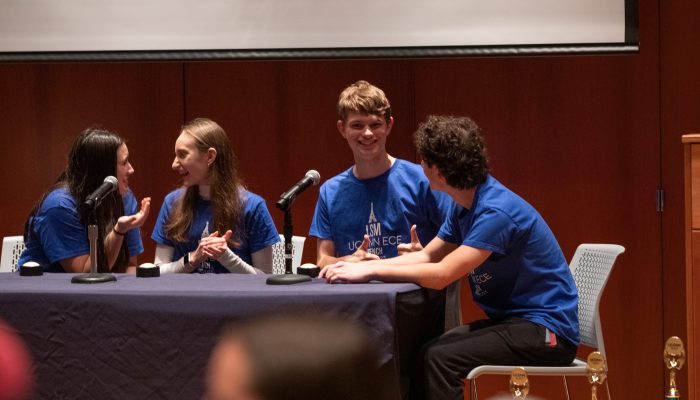
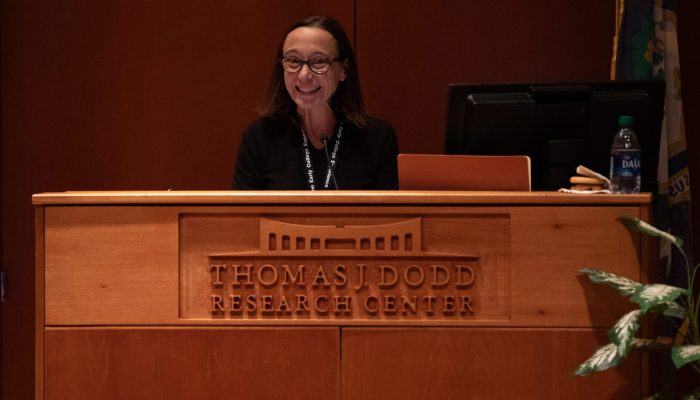
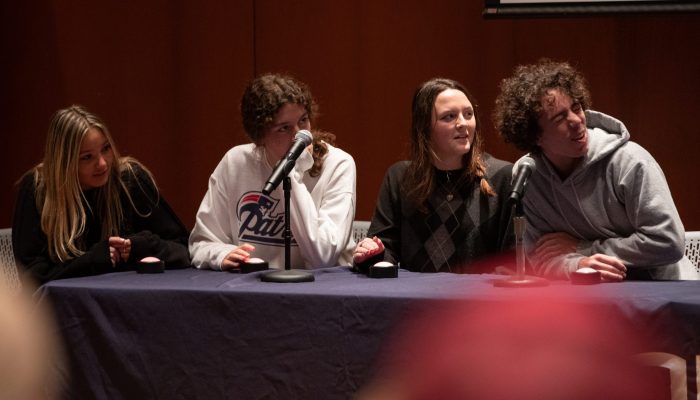
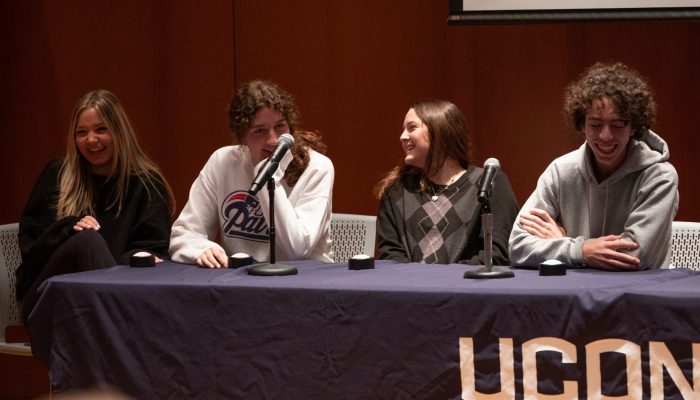
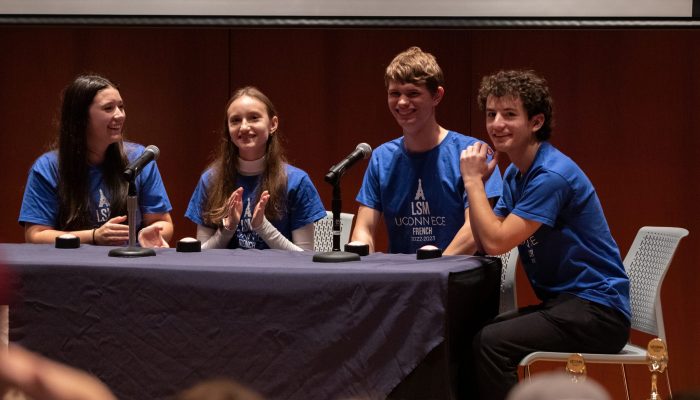
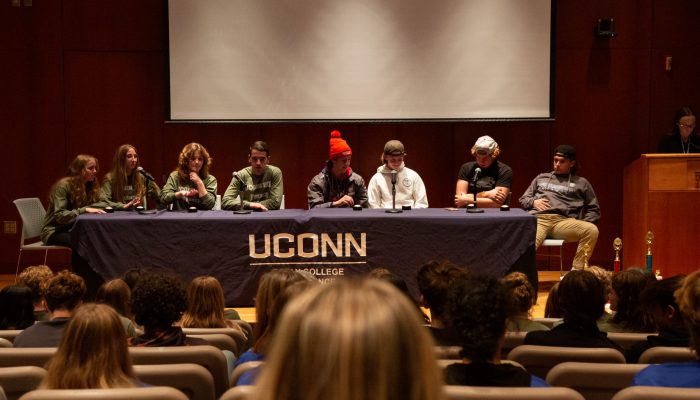
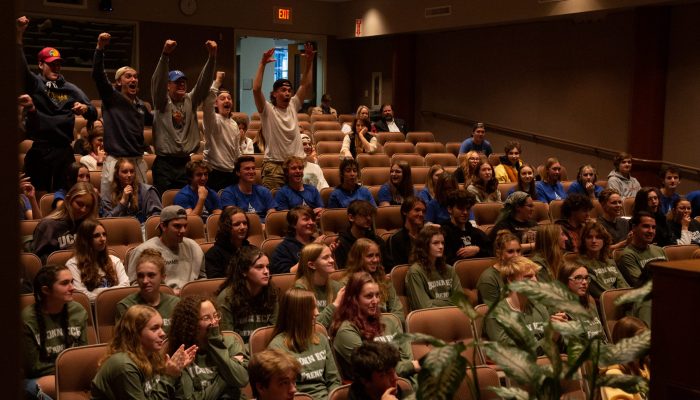
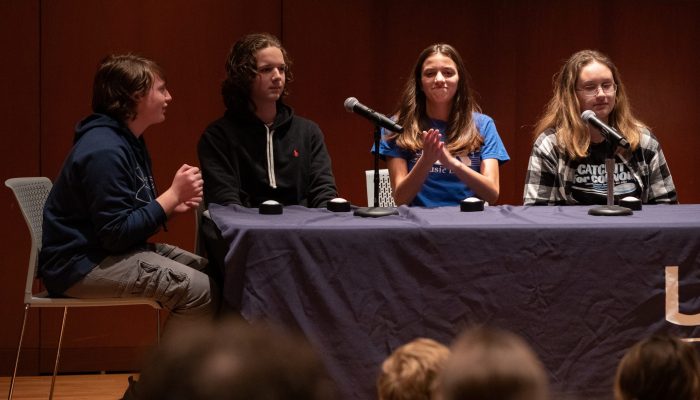
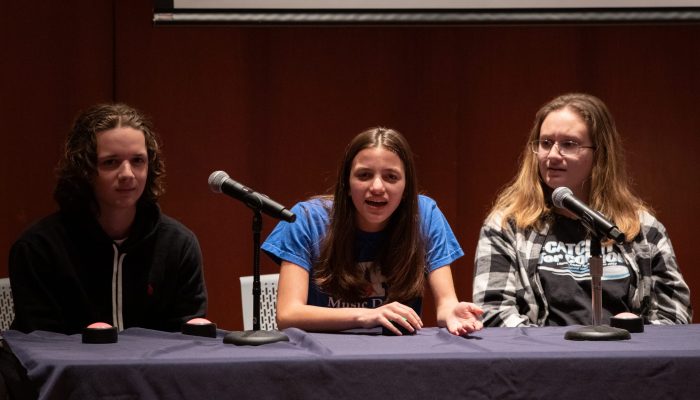
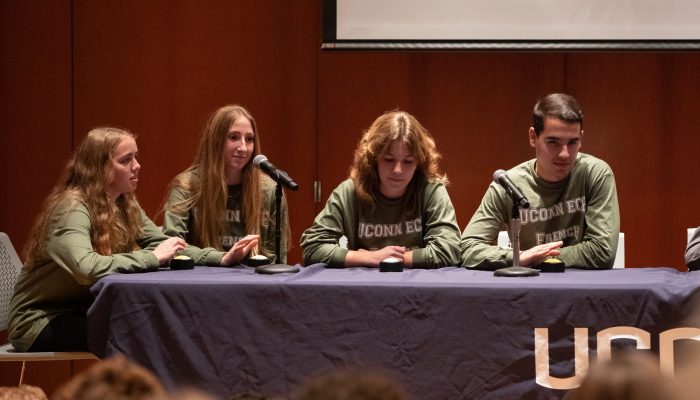
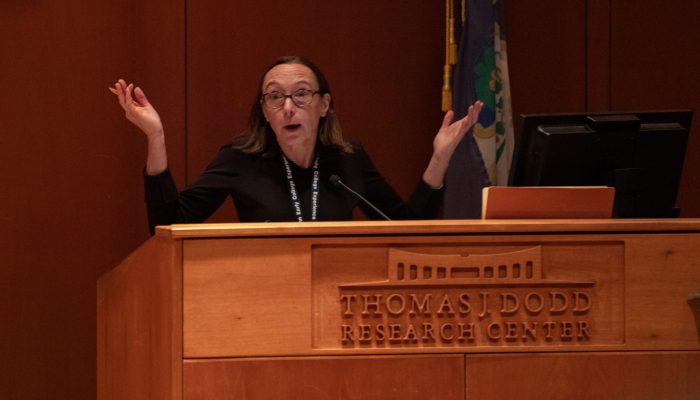
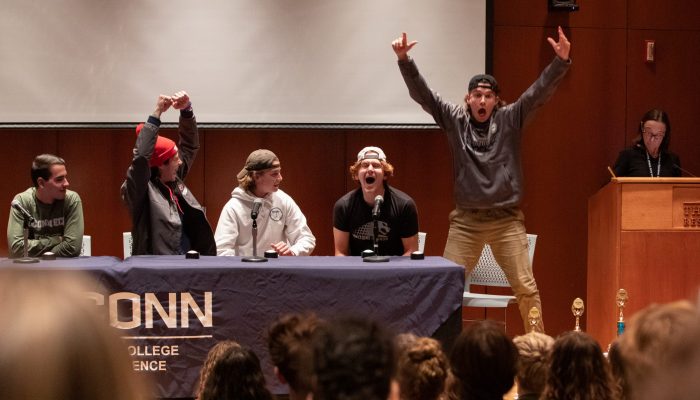
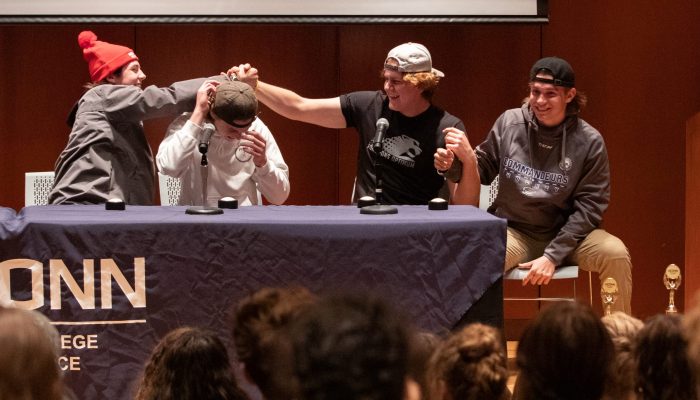
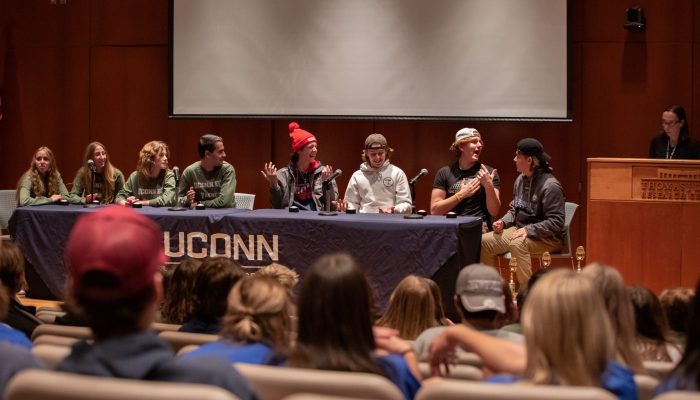
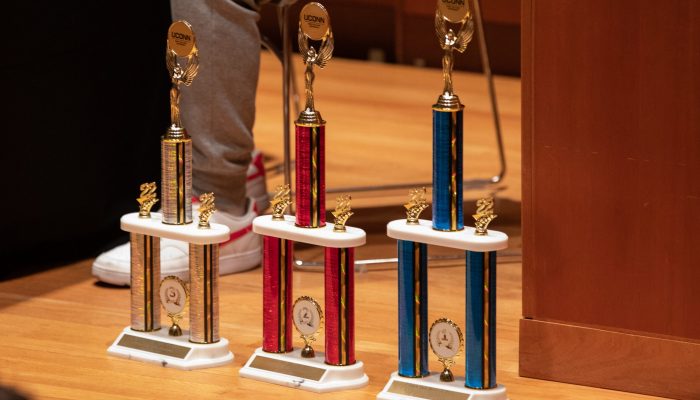
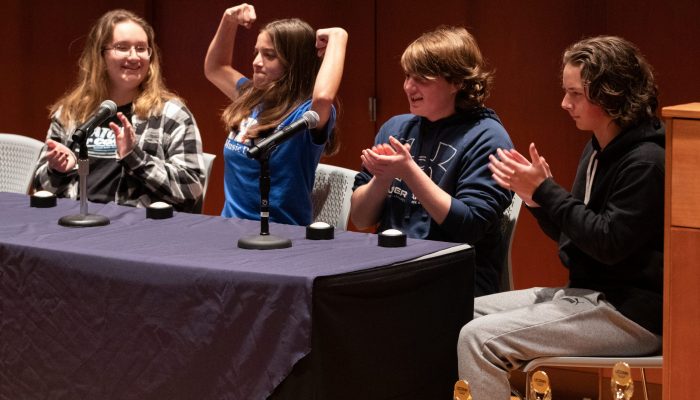
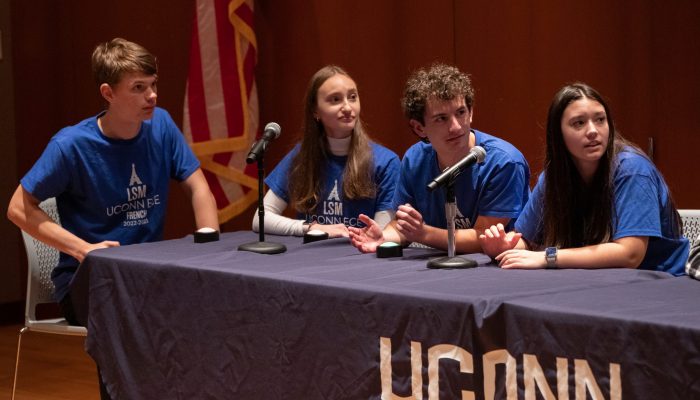
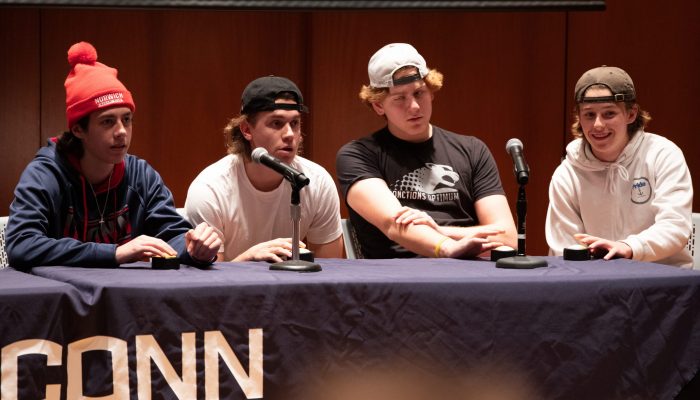
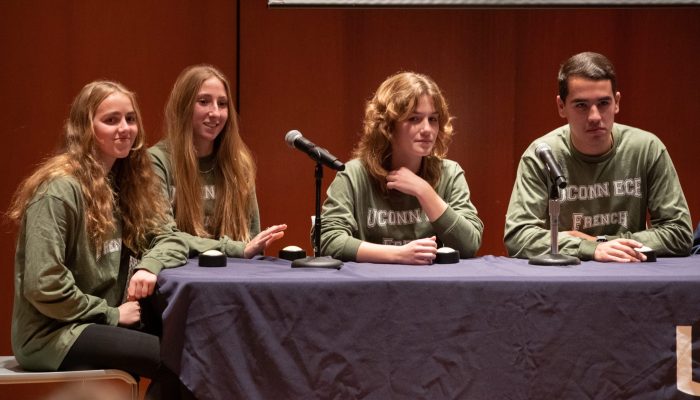

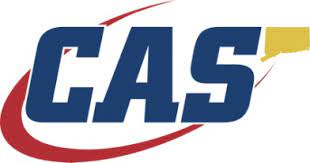
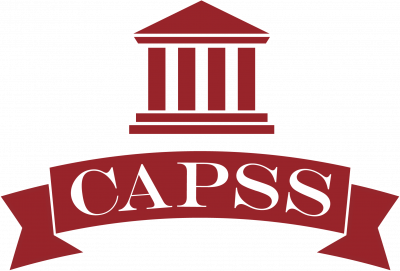






 Teaching of Foreign Languages
Teaching of Foreign Languages Andrew Morehouse: While attending the 2022 ACTFL conference in Boston, I had some wonderful opportunities for professional development in seeing multiple sessions on utilizing SLA theory in practice (especially with a focus on assessment) and using tech tools that are in line with modern language pedagogy. Additionally, I made connections with several publishers to work on projects with them that will provide better Latin resources for the world. When not at talks or chatting with publishers, I was able to get resources such as novellas for my Spanish classes. All the while, I spent time with dear friends and colleagues and developed deeper bonds and relationships with these folks. I am incredibly appreciative of the funding from UConn that allowed this to happen and I look forward to going to ACTFL Chicago next year to spread more word of the ECE program.
Andrew Morehouse: While attending the 2022 ACTFL conference in Boston, I had some wonderful opportunities for professional development in seeing multiple sessions on utilizing SLA theory in practice (especially with a focus on assessment) and using tech tools that are in line with modern language pedagogy. Additionally, I made connections with several publishers to work on projects with them that will provide better Latin resources for the world. When not at talks or chatting with publishers, I was able to get resources such as novellas for my Spanish classes. All the while, I spent time with dear friends and colleagues and developed deeper bonds and relationships with these folks. I am incredibly appreciative of the funding from UConn that allowed this to happen and I look forward to going to ACTFL Chicago next year to spread more word of the ECE program. Amy Bigelow: December 1 & 2, math educators converged in Baltimore for the annual
Amy Bigelow: December 1 & 2, math educators converged in Baltimore for the annual